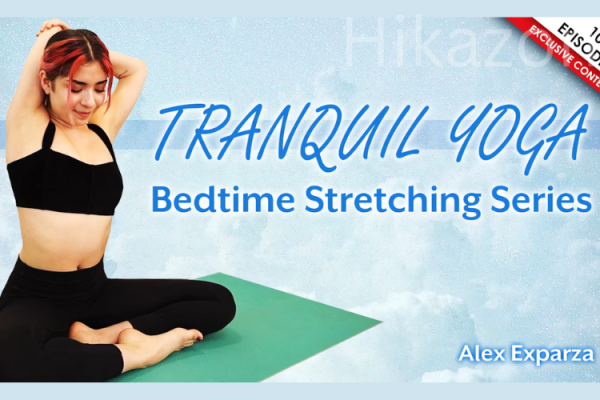Yoga for Self-Care By Pamela Stokes Eggleston & Amina Naru
$6.00
Yoga for Self-Care By Pamela Stokes Eggleston & Amina Naru – Digital Download!
Content Proof:
Yoga for Self-Care: A Transformative Guide by Pamela Stokes Eggleston and Amina Naru
In today’s fast-paced world filled with constant demands and distractions, the essence of self-care often devolves into mere indulgences short spa visits, gourmet meals, or fleeting moments of relaxation. However, “yoga for self-care” by Pamela Stokes Eggleston and Amina Naru offers a refreshing perspective that transcends these superficial actions. This book serves not only as a comprehensive guide to self-care through yoga but also as an invitation to engage in a more holistic practice that nurtures the mind, body, and spirit. Emphasizing the profound impacts of chronic stress and moral injury, the authors present a multi-faceted framework aimed at enhancing resilience, cultivating joy, and ultimately revitalizing one’s energy. This article delves into the book’s core themes, insights, and practical applications, offering a rich understanding of how to seamlessly incorporate yoga into personal self-care routines.
The Holistic Approach to Self-Care
Understanding the Misconceptions
One of the most compelling aspects of Eggleston and Naru’s work is their commitment to dismantling the widespread misconceptions surrounding self-care. Many individuals view self-care through a narrow lens, equating it with occasional pampering sessions or fleeting attempts at relaxation. The authors argue that such activities, while beneficial to some extent, do not constitute a sustainable approach to long-term wellness. They liken this common mindset to trying to fill a leaking bucket with water regardless of how much we pour in, if the underlying damage is not addressed, the bucket will never stay full.
Instead, the authors advocate for a personalized, multi-layered self-care routine. This routine is akin to building a fortress, comprised not just of solid walls, but also of varied defenses that protect against life’s adversities. They emphasize that self-care encompasses more than physical activities; it also requires emotional and spiritual nourishment. This perspective aligns with research that supports a holistic approach to wellness, demonstrating that mental health, physical health, and spiritual well-being are deeply interconnected.
Engaging with Moral Injury and Burnout
Moral injury and burnout are central themes in “yoga for self-care.” The authors address these issues with urgency, drawing upon their extensive experience in the yoga community to highlight how chronic stress can erode mental and physical health. They describe moral injury as a profound psychological distress that arises from actions or the lack of actions that conflict with one’s moral beliefs. Much like a storm that wreaks havoc on a serene landscape, moral injuries can leave emotional devastation in their wake.
To combat such adversities, Eggleston and Naru provide practical tools and techniques that individuals can adopt in their lives. They advocate for the integration of mindfulness practices, such as meditation and focused breathing, as part of one’s self-care routine. These practices serve not only to reduce stress but also to cultivate self-awareness an essential component for understanding one’s unique needs in the self-care journey.
Practical Applications in Daily Life
“Yoga for self-care” offers an array of guided practices and exercises designed to cater to practitioners of all levels, enhancing accessibility and encouraging engagement. From beginner to advanced, the authors provide insights that promote sustainability in self-care through yoga. This aligns seamlessly with modern wellness trends, as individuals increasingly seek practices that yield tangible benefits in their day-to-day lives.
- Yoga Poses for Stress Relief: Simple poses such as Child’s Pose or Downward Facing Dog that release tension in the body.
- Mindfulness Techniques: Short breathing exercises that can be integrated into daily routines to ground oneself during stressful moments.
- Introspection Exercises: Journaling prompts that encourage individuals to reflect on their feelings and experiences, deepening their self-awareness.
The combination of these tools can empower readers to create their own personalized self-care regimen. This approach underlines the notion that self-care is not a one-size-fits-all model but rather an evolving practice tailored to one’s needs and circumstances.
The Transformative Power of Yoga
Building Resilience Through Practice
The authors emphasize that yoga is not simply about physical postures. They argue that it serves as a powerful medium for cultivating resilience much like a tree that bends with the wind but does not break. Resilience, according to Eggleston and Naru, is built through consistency, self-expression, and the forging of a deeper connection with one’s innermost self. This resonance between mind and body creates a fertile ground for personal growth and healing.
Research supports the transformative power of yoga, demonstrating its efficacy in reducing symptoms of stress, anxiety, and depression. A study published in the Journal of Clinical Psychology found that individuals who practiced yoga regularly experienced significant improvements in mental health compared to those who did not engage in such practices. This reinforces the authors’ premise that self-care through yoga is essential not only for relaxation but also for long-term wellness.
Nurturing Emotional and Spiritual Self-Care
“Yoga for self-care” also delves into the emotional and spiritual aspects of self-care, suggesting that nurturing these elements is crucial for overall well-being. Just as one tends to a garden to foster growth, nurturing our emotional and spiritual selves can create a flourishing inner landscape.
The authors propose exercises aimed at enhancing emotional intelligence, encouraging readers to explore their feelings more deeply and to understand how these emotions influence their responses to life’s challenges. Spiritual self-care, on the other hand, can be as simple as connecting with nature or practicing gratitude. By emphasizing these dimensions, Eggleston and Naru remind us that self-care extends beyond the physical domain; it encompasses the full spectrum of human experience.
The Role of Self-Awareness in Self-Care
Understanding Personal Needs
Self-care is inherently personal. The authors argue that understanding one’s own needs is fundamental to creating an effective self-care routine. They liken this understanding to navigating a ship through uncharted waters without a compass, one risks being lost at sea. For individuals to tailor self-care practices effectively, they must first engage in introspection.
To facilitate this process, Eggleston and Naru recommend utilizing self-assessment tools like quizzes or reflection prompts to better identify one’s emotional state and areas for improvement. By fostering this sense of awareness, individuals can more effectively adjust their self-care practices, ensuring they resonate with their unique experiences and feelings.
Responsive Care: Listening to the Body’s Signals
Moreover, the authors highlight the importance of responsive care the continuous act of listening and responding to one’s body and mind. This dynamic approach is essential for ensuring that self-care practices remain effective and relevant. It is similar to how a musician must listen to their instrument to produce harmonious melodies; tuning into oneself is fundamental to achieving a balance of wellness.
The book provides various methods to cultivate this sensitivity, such as mindfulness meditation and body scans, which encourage individuals to attune themselves to physical sensations. This practice enables them to acknowledge discomfort or emotional unrest, ultimately guiding them toward appropriate self-care responses. By fostering this level of attentiveness, Eggleston and Naru empower readers to create a sustainable, evolving self-care approach.
Conclusion
“Yoga for self-care” by Pamela Stokes Eggleston and Amina Naru is more than just a guide; it is an invitation to embark on a transformative journey toward holistic well-being. By challenging conventional notions of self-care and advocating for a personalized, multi-layered approach, the authors provide readers with the tools necessary to foster resilience, joy, and renewed energy in their lives. Their insights into moral injury, burnout, and the critical importance of self-awareness serve to reinforce the notion that self-care is an ongoing commitment rather than a series of momentary indulgences. As we navigate the complexities of modern life, this book serves as a beacon of light encouraging us to embrace yoga not just as a practice, but as a profound self-care philosophy that nurtures the essence of who we are. Through its transformative principles, readers will find that integrating yoga into their self-care routines can lead to a healthier, more fulfilled existence, embodying the harmony of mind, body, and spirit.
Frequently Asked Questions:
Business Model Innovation: We operate a group buying strategy, allowing participants to share costs and access popular courses at reduced prices. This model benefits individuals with limited financial resources, despite concerns from content creators about distribution methods.
Legal Considerations: The legality of our operations involves complex issues. Although we don’t have explicit permission from course creators to resell their content, there are no specific resale restrictions stated at the time of purchase. This ambiguity creates an opportunity for us to provide affordable educational resources.
Quality Control: We ensure that all course materials purchased are identical to those offered directly by the creators. However, it’s important to understand that we are not official providers. As such, our offerings do not include:
– Live coaching calls or sessions with the course author.
– Access to exclusive author-controlled groups or portals.
– Membership in private forums.
– Direct email support from the author or their team.
We aim to reduce the cost barrier in education by offering these courses independently, without the premium services available through official channels. We appreciate your understanding of our unique approach.
Be the first to review “Yoga for Self-Care By Pamela Stokes Eggleston & Amina Naru” Cancel reply
You must be logged in to post a review.


















Reviews
There are no reviews yet.